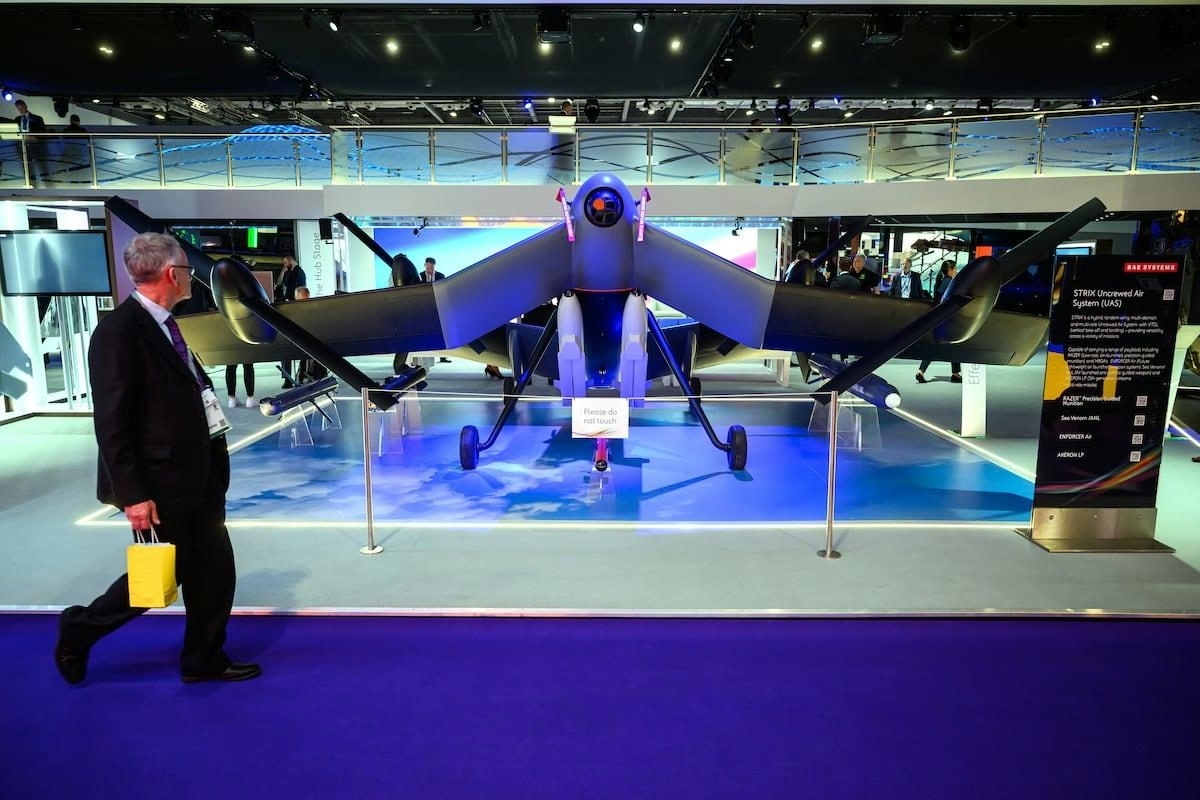AeroGenie — Your Intelligent Copilot.
Trending
Categories
BAE Systems Innovation Unit Partners with Skunk Works on Electronic Warfare

BAE Systems Innovation Unit Partners with Skunk Works on Electronic Warfare
BAE Systems’ innovation division, FalconWorks, has entered into a strategic collaboration with Lockheed Martin’s Skunk Works to develop a modular family of uncrewed aerial systems (UAS) designed to enhance electronic warfare capabilities. The partnership’s initial focus is on the suppression of enemy air defenses (SEAD) mission, a critical domain as modern battlefields face increasingly sophisticated electronic threats.
Collaborative Development of Autonomous Systems
Announced at the DSEI exhibition in London, FalconWorks managing director Dave Holmes revealed that the two companies have been collaborating for over a year to explore opportunities within this emerging technology sector. Holmes emphasized the intent to combine the strengths of both organizations to address a nascent but vital area of defense technology. The joint effort centers on creating a family of autonomous vehicles with shared, collaborative capabilities adaptable across multiple platforms, including airborne, ground, and naval assets.
OJ Sanchez, general manager of Skunk Works, highlighted the flexibility of the proposed systems, which are being designed to meet diverse customer requirements. He underscored the importance of cost-effectiveness, ease of deployment, and expendability in the design philosophy, reflecting the operational demands of modern electronic warfare environments.
Technological Integration and Market Implications
A significant challenge for the partnership lies in integrating advanced technologies while ensuring interoperability with existing defense systems. Both BAE Systems and Lockheed Martin bring extensive experience in rapid prototyping, advanced manufacturing, and innovative design, which they anticipate will accelerate development and help address current shortfalls in electronic attack capabilities faced by many armed forces.
The companies have unveiled an initial concept rendering inspired by Lockheed’s Common Multi-Mission Truck (CMMT) family of systems, known for their modularity and adaptability to various mission profiles. Earlier this year, Lockheed conducted flight tests with the CMMT-D compact cruise missile and the smaller CMMT-X vehicle, demonstrating the viability of this modular approach.
Holmes indicated that the envisioned electronic warfare or SEAD system would weigh under one tonne, making it lightweight and potentially expendable. He stressed the urgent need for warfighters to possess capabilities that can penetrate complex and denied electronic warfare environments, describing the solution as potentially transformative for end users.
Market observers are likely to view this partnership as a significant development in electronic warfare, with potential implications for defense budgets and procurement strategies worldwide. Competitors may respond by accelerating their own innovation efforts or forming alliances to remain competitive in this rapidly evolving domain.
Holmes also referenced the longstanding collaboration between BAE Systems and Lockheed Martin on the F-35 program as evidence of their ability to deliver cutting-edge solutions. He described the partnership with Skunk Works as highly complementary to BAE’s existing cooperation with European guided weapons specialist MBDA, underscoring a shared commitment to equipping warfighters with decisive technological advantages.

Emirates Unveils Cabin Design for New Boeing 777X

Eighteen Years On, the Airbus A380 Remains Central to a $34 Billion Airline

How a boom in luxury airline seats is slowing down jet deliveries

Navitaire Outage Attributed to Planned Maintenance

DigiYatra Debuts Outside Aviation at India AI Impact Summit

Vietnam Orders Strengthen Boeing’s Commercial Outlook

Airbus Signals Uncertainty Over Future A400M Orders

JobsOhio Awards $2 Million Grant to Hartzell Propeller for Innovation Center

Collins Aerospace Tests Sidekick Autonomy Software on YFQ-42A for U.S. Air Force CCA Program

How the Airbus A350-1000 Compares to the Boeing 777
